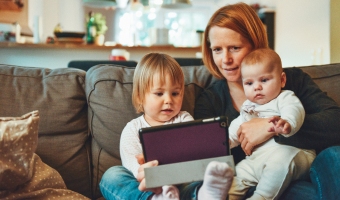Needs, education and counselling of families and professional practice
Context and social relevance
Family is the most important thing in life for most people. At the same time, however, living together as a family brings with it new questions, tasks and challenges. It is characterized by social change: the individualization of life plans, the pluralization of family forms, the increasing multilocality of families as well as structural constraints due to the multiple requirements regarding the compatibility of family and career. The challenges of family life are intensified by changing role expectations, family models, and a pedagogisation of parenthood.
Being part of a family also means being embedded in a dynamic network of relationships within the family. Thus, family life requires permanent adaptation and production efforts from all family members in the sense of a doing-familyapproach, accelerated by transitions in the course of life, some of which take place in parallel, and the occurrence of critical life events.
Becoming a parent, being a parent, and the organization of family life are therefore associated with great demands, which are, on the one hand, shaped by the prevailing social values and norms, but are also determined by personal goals and ideas. In this context, families have a wide range of questions and needs depending on their life situation, family phase, and family situation.
To avoid serious problems arising from initially small burdens, preventive information, counselling, and opportunities for discussion - for example in the context of parental and family education - are among the most important family policy measures. Effective child and youth welfare services and adult education that meet the needs of children and young people are therefore of great social relevance. In order to be able to develop appropriate evidence-based concepts, design support programs and provide a low-threshold, tailored and efficient offer of support and counselling for all those involved in the family, a constant mutual exchange andclose cooperation between science, practice and politics is required.
Topics and issues
The research area “Needs, education, and counselling of families and professional practice” focuses, on the one hand, on the resources and needs of families: What strategies and resources do parents use to make family life wholesome and to enable their children to grow up healthy and develop well? What specific needs arise depending on the family phase, family situation and life situation? And what do parents need when their own action and coping strategies are strained?
On the other hand, we analyze and reflect on how, by whom and with what means families can be supported and empowered, both preventively and under existing burdens: On which topics, with which methods and through which approaches can the professional practice support parents in the long term? Which framework conditions and resources are necessary for the practice to fulfil its legal mandate and its professional standards? How must social institutions develop in the face of social change? And what conceptual and methodological approaches can be used to shape and expand the transfer between theory and practice?
Research and transfer
The working methods and services in this research area are threefold:
1. Application-oriented research projects are carried out, whose findings are transferred into practice in a solution-oriented manner. This includes research on practical challenges, scientific monitoring and evaluation of family-related measures as well as model and practice projects.
2. Basic research is carried out to generate and interpret new knowledge.
3. There is a research-practice transfer in the form of policy and practice advice, e.g., advice to family policy actors.
Depending on the research question, quantitative and/or qualitative research methods are used. In addition, adult education - participatory and designoriented - methods are applied. Mixed-method approaches are often chosen in this research area in order to be able to cover various aspects and dimensions by means of method triangulation.
For the different target groups of this area - professional practice, politics, and the scientific community - the scientific findings are adequately prepared. Dissemination and transfer take place within the framework of organizational consulting, by means of intra- and interdisciplinary events such as congresses, further education, and workshops as well as in the form of lectures and publications.


